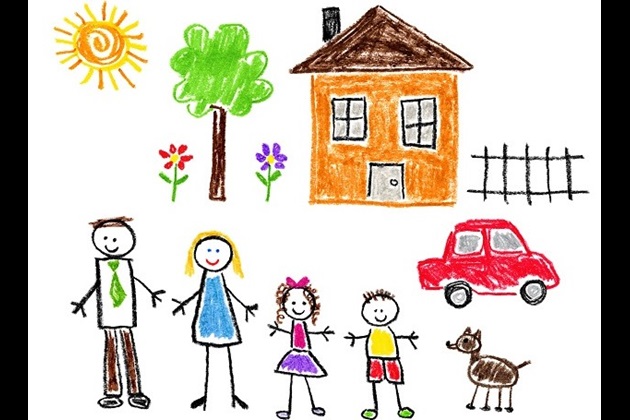RCN member Leila Francis is a specialist nurse providing expert advice on the assessment and treatment of children who have been maltreated, including victims of sexual abuse, trafficking and “FII” – fabricated or induced illness where a parent or carer exaggerates or deliberately causes symptoms of illness in a child.
Nearly 60,000 children in the UK were subject to child protection measures in 2019. Child protection systems differ slightly in England, Wales, Scotland and Northern Ireland, but all have one aim: to keep children safe from abuse and neglect.
You have the opportunity to identify behaviour which could indicate a child is being abused
Some children are more vulnerable to abuse than others – those who live in chaotic or dysfunctional households, for example, children with learning disabilities and those linked with gangs.
Safeguarding nurses work, like Leila, with children or adults, helping to ensure that appropriate services are commissioned to safeguard and support those at risk from abuse and neglect. As designated nurse for safeguarding children with Mid Essex Clinical Commissioning Group, Leila is not only a clinical expert but also a strategic lead on the health service’s role in safeguarding children.
“Designated nurses play an integral role in all aspects of the commissioning cycle, from procurement to quality assurance,” she says.
All nursing staff have a part to play
Along with other experts in child safeguarding, Leila has helped update RCN guidance on protecting children and young people. The guidance makes clear that all nursing staff, not just those who work in children’s services, have a part to play in keeping children and young people safe.
“The responsibility also applies to nurses working primarily with adults,” says Leila. “Staff in these settings need to be aware that any adult may pose a risk to children.”
She adds: “Even if your primary responsibility does not relate to children, you’ll have the opportunity to observe and identify behaviour which could indicate a child is being abused or neglected.”
The RCN guidance offers practitioners wide-ranging advice on issues to consider in relation to safeguarding children. For example:
- ensure you know who has parental responsibility
- ensure you know who is living with the child or children
- consider the involvement of and potential risks posed by all adults who have a significant influence on a family, even if they don’t live in the same house.
Signs that may indicate child abuse and neglect and which nursing staff should be alert to include:
- physical signs, including bruising in unusual areas, bruised eyes and bite marks
- poor physical health, inadequate hygiene and inappropriate dress
- repeatedly missed appointments or failed access visits
- unrealistic parental expectations and over-protection
- poor school attendance not explained on health grounds
- behavioural signs such as fear of certain adults
- stories provided by an adult that are inconsistent with a child’s injuries
- repeated attendance with different types of injury.
Safeguarding is everyone's responsibility
Not all abuse carries physical signs. Evidence of emotional or sexual abuse may be less immediately obvious but certain behaviours should trigger concern, says the updated guidance.
For example, children who are very withdrawn, fearful or anxious about doing something wrong may be suffering emotional abuse. And sexual abuse or exploitation can cause children to have knowledge of or interest in sexual acts inappropriate to their age. They may use sexual language or ask others to play sexual games.
Unexplained gifts or new possessions, having older boyfriends or girlfriends and regularly missing school can suggest sexual exploitation.
Safeguarding principles to apply to your practice
As well as reading the RCN guidance, Leila advises that nursing colleagues should apply the following principles to their practice to help ensure the safety of children and young people.
- A child’s welfare is paramount in every respect, regardless of whether you feel sympathy or respect for the parent or carer.
- Children have a right to be safe and should be protected from all forms of abuse and neglect. “Safeguarding children is everyone’s responsibility,” says Leila.
- All nursing staff who are in contact with children and young people, including those who work mainly with adults, should know what to do if concerns about safeguarding and child protection issues arise.
- All nurses should be able to identify potential signs of child abuse.
- There is a widely recognised link to poor outcomes for children who are not brought or supported to attend health appointments. This may be considered a child protection issue.
- Acting as an effective advocate for a child or young person is the responsibility of all nursing staff. But while proactively seeking the child’s views, and taking competency guidelines into account, nurses should balance children’s rights and wishes with a professional responsibility to keep children safe.
- Nursing staff should be aware of the possible impact of a parent or carer’s physical and mental health on the wellbeing and development of a child or young person, including an unborn child.
- Be clear about your own and colleagues’ roles, responsibilities and professional boundaries, and even about the possibility of abuse by other professionals. “Raise concerns about the conduct of colleagues if appropriate,” Leila says.
Raising safeguarding concerns
If you have safeguarding concerns, it’s important you raise them.
- Follow your organisation’s child protection policies and procedures. These will tell you how to share information and who with. All providers of health services have a named professional for child protection.
- The principles for sharing information about child safeguarding concerns are: necessary, proportionate, relevant, adequate, accurate, timely and secure. Government guidance for practitioners on safeguarding says: “Ensure that the information you share is necessary for the purpose for which you are sharing it, is shared only with those who need to have it, is accurate and up-to-date, is shared in a timely fashion, and is shared securely.”
- The guidance also says data protection rules “are not barriers to justified information sharing”.
- The updated RCN guidelines on child safeguarding say good record keeping is essential in piecing together apparently unrelated factors. Reports should be “factual, clear, accurate, accessible and comprehensive”.
- Write down all observations and discussions as they happen. Record your judgement and any action taken. Be sure to add the date and time for all entries.
- Use a body map to identify any specific marks or injuries.
- Note dates of and reasons for attendance, non-attendance and significant incidents.
- Always make referrals to other agencies in writing.
Leila Francis is a member of the steering committee of the RCN CYP Staying Healthy Forum. The forum’s focus is on promoting the physical, mental and emotional health and wellbeing of children and young people. It is one of five RCN forums dedicated to children’s nursing.








